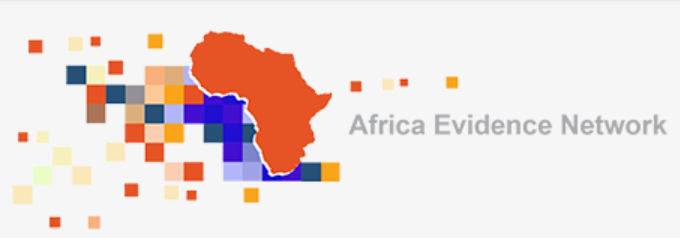
The Evidence 2016 conference is happening from 20-22 September 2016 at the CSIR International Convention Centre in Pretoria. The conference chair Dr Shanil Haricharan shares his thoughts about the upcoming conference.
“Aristotle, the great Greek philosopher and scientist, proclaimed in a treatise written in 350 BC that women have fewer teeth than men. Today we know this is nonsense. But for almost 2,000 years, it was accepted wisdom in the Western World. Then one day, someone had the most revolutionary of ideas: let’s count! The scientific method― formulating a hypothesis and then testing it― is so deeply ingrained in our thinking that we find it hard to conceive that intelligent people would blindly trust authority and not put assumptions to the test…We can’t quite understand how people in the Middle Ages believed Aristotle’s claim that women had fewer teeth than men. And yet, it seems we can be prisoners of our thoughts just as much as they were.”
Frederic Laloux, the author of Reinventing Organisations, highlights the importance for every generation to question contemporary thinking in their society. Herein lies the value of research evidence: the product of scientific processes. Research evidence is fundamental to developing sound public policies and effective delivery programmes.
For Phil Davies, former service delivery advisor to the UK Cabinet Office, the use of high quality evidence can be a formidable tool for determining the likely impact and outcomes of a policy, improving the implementation and delivery of policy, improving risk assessment and risk management, improving transparency and accountability, and improving public services and the quality of life for citizens.
Nevertheless, researchers and practitioners are well aware of the plethora of issues that afflict the producers and users of research evidence. Consequently, a growing focus has emerged in relation to evidence-based policy-making (EBPM), evidence informed policy-making (EIPM), and evidence-informed decision-making (EIDM) – all rather synonmous phenomena.
Key among the vexing issues for EIDM is context: the public sector; acknowledged as a challenging, turbulent, complex, dynamic and transforming setting. Many scholars and practitioners consider managing in the turbulent context of today’s public service means immersion into “permanent white water”. Of global concern is the crisis in public leadership.
Not surprisingly, the issue of the political and institutional nature of the public sector context emerged as a key theme at the Africa Evidence Network (AEN) Colloquium at the University of Johannesburg, South Africa in November 2014. A notable event as it brought together the EIDM community from the African continent and beyond. The well-attended colloquium, which connected producers and users of evidence, indicates the growing value and demand for evidence on the continent.
Another set of related key issues for EIDM (and also emphasised at the AEN colloquim) is collaboration, dialogues, partnerships, building bridges, networks, platforms, and communications among and between policymakers and researchers. The colloquim presented an opportunity for these consistituencies to interact and share innovative ideas on their work in EIDM.
A third set of issues centres on individual behaviours and organisational culture of policymakers and researchers, and their institutions. In this regard both consistuencies face challenges. Andrew Clappison, a critical writer on evidence surmises that a huge obstacle for evidence informed policy-making is “the fact [that] we live in a socially constructed world, where politics, culture and power shapes peoples behaviour and norms. Change in these areas is notoriously difficult and means interventions aiming to facilitate EIPM face a series of ‘wicked’ challenges.”
Additionally, he reckons: “Cultural, attitudinal and behavioural change is required in every corner of society in order to see the full horizontal integration of EIPM, and based on current trends society is not ready for this.”
A burning issue for the research community is the poor uptake of evidence by policymakers and the chasm between their worlds. Researchers need to heighten their awareness of public sector realities – the world of the policymaker – in relation to public governance systems, leadership behaviours, and organisational culture to build bridges and nurture relationships and trust. Such an understanding and closer affiliation may result in improving the relevance and the demand for evidence by policymakers. As Clappison advises: “Until achieving EIPM is framed as a ‘governance’ problem (with its multiple and complex facets) any future intervention will simply be floating around the edges of this wicked issue.”
Despite the immense challenges facing EIPM or EIDM, there is great potential in EIDM, and still a great deal of learning is required. To further nurture the evidence community in Africa and build on the successes of the 2014 Colloquium, the AEN is hosting EVIDENCE 2016, funded by UK Aid and the University of Johannesburg, from the 20-22 September in Pretoria, South Africa.
EVIDENCE 2016 aims to encourage and promote EIDM in Africa, thereby contributing to the development of effective public policies, efficient implementation of services, as well as joint learning on interventions that tackle poverty and equality in African countries.
In building on the 2014 Colloqium, the objectives of the EVIDENCE 2016 conference are:
- To share lessons learnt and advance discussions in supporting EIDM in Africa;
- To increase engagement across AEN membership and build relations with relevant institutions and professionals in EIDM;
- And to situate the AEN as a key player in, and umbrella body for, EIDM in Africa.
An exciting range of plenary, small group and oral poster presentations are expected from academic and public sector participants from 15 African countries, including Canada, India and the UK, focusing on the three conference themes: Engage, Understand and Impact.
These themes will take up the many challenges facing EIDM and is expected to contribute to our learning, so researchers and policymakers are not “prisoners of [their] thoughts” like their Middle Ages counterparts.
Together with the AEN conference organising team, I look forward to your participation at the evidence event of the year – Evidence 2016!